By Andy Markham on Thu, Jun 17, 2021
Our brains have four core functions — emotion, feeling, cognition and self-control — powered by twelve interdependent brain capacities. These capacities determine our responses to challenging situations. Will we be anxious or can we remain calm? How well can we manage stress?
Can we stay focused and productive? Tuning in to these responses helps us better understand our brain function so we can stay mentally healthy and operate at our best.
Wondering where to start? Total Brain’s mental health assessment can help open a window into your current mental state. By evaluating your brain capacities and screening for potential risks of common conditions like depression, anxiety and ADHD, our 15-minute confidential questionnaire, which we’ve recently updated for improved usability, helps you get an idea of where you stand so you can learn how to improve your brain performance and mental health.
Evaluate your four key brain functions
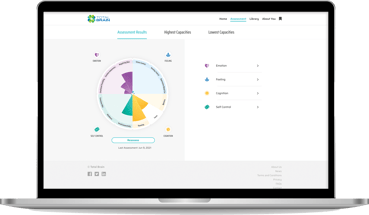
To paint a comprehensive picture of one’s current mental state, the Total Brain assessment takes users through a series of tasks and questionnaires and screening questions pertaining to the 12 brain capacities. Each game has been refreshed with clearer, more concise instructions to help users get the most out of the exercises. Interface improvements, such as enhanced button feedback and a cleaner page design, have also been included to make the assessment more user-friendly.
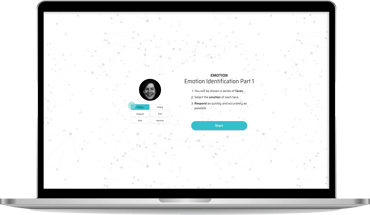
To start, the assessment evaluates the three capacities of our emotion function: emotional flexibility, emotion awareness and negativity bias. Because our emotional capacity drives all other core brain functions, it is crucial to understand how our emotions define our reactions. Insights into our emotions enable us to train for positivity, which in turn leads to more pleasant interactions with others.
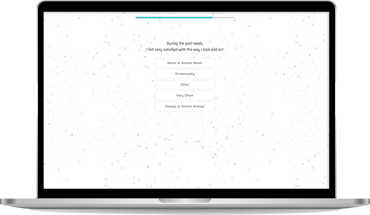
Then it dives into feeling capacities, which include stress, anxiety and depressive mood control. When we are overwhelmed by stress and anxiety, our feelings get thrown off-balance, which can hurt our ability to communicate or be at our best. Tuning in to how we’re affected by our stress, anxiety and mood empowers us to manage each in healthier ways.
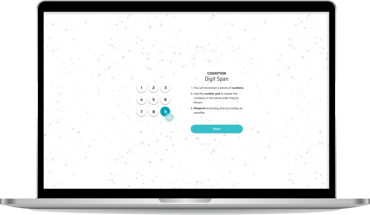
Next, it screens our cognition capacities of planning, focus and memory. When we are triggered by our emotions and feelings, our brain looks for alignment between our intuitive, unconscious bias and our rational, conscious processing. Planning, focus and memory help support this conscious cognition. Understanding where we are with our abilities to plan, focus on and remember things can help us achieve the state of mind we need for peak creativity and optimal decision-making.
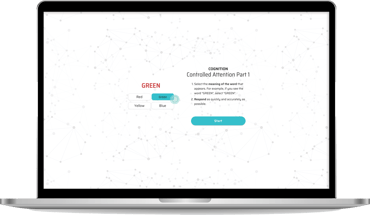
Finally, the assessment takes a look into the self-control capacities: conscious bias, resilience and social connectivity. We tend to lose self control when we are triggered by negative emotions and our fight-flight system kicks in. In those moments, our ability to connect with others compassionately or handle and bounce back from adversity can be impaired. Our system of self-control regulates our emotion, feeling and cognition functions for the completion of any task or goal, so understanding our current states of conscious bias, resilience and connectivity is key to unlocking positive mental well-being.
At the completion of the assessment, Total Brain analyzes the results and provides a user-friendly report displaying your areas of strength and weakness. Users also receive a four-week training plan built around maintaining high function in your areas of strength and sharpening the areas that need most improvement. The plan includes Total Brain’s brain games, guided meditations and breathing sessions, educational content and more, to empower each individual with the tools they need to achieve optimal mental health.
Keep your brain health top of mind
Just as we eat healthy and work out regularly to maintain our physical health, we need to exercise the brain consistently to promote mental health. To help with this, we prompt users to take an assessment every month. Ideally, this should be done at the completion of the four-week training program so we can observe areas of progress and understand how mental health has been affected by recent life events.
Interested in learning more? Schedule a call with us to see how it could benefit your company, too.




comments